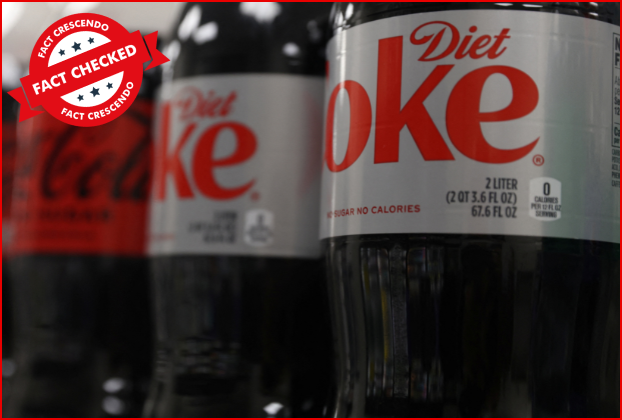Time: 2024-07-24
Many people are increasingly opting for Diet soda over sugary soft drinks , believing it to be a healthier choice . The rise in popularity of diet sodas has led to concerns over the impact of artificial sweeteners such as aspartame , commonly used in these beverages . The World Health Organization ( WHO ) recommends limiting sugar intake to improve overall health , but the shift towards diet sodas raises questions about the long - term effects on consumers ' well - being.
One of the key ingredients in diet sodas is aspartame , a sweetener that is significantly sweeter than sugar and is used as a sugar substitute . While aspartame and other artificial sweeteners are considered safe for consumption by food authorities , studies have suggested a potential link between regular consumption of diet sodas and the development of metabolic conditions like diabetes and heart disease . The debate around the safety of aspartame intensified in 2023 when the WHO classified it as possibly carcinogenic to humans , sparking public concern and discussions about the risks associated with its consumption.

The controversy surrounding aspartame further deepened when concerns were raised about Coca - Cola Zero , a popular beverage sweetened with aspartame . The International Agency for Research on Cancer ( IARC ) classified aspartame as possibly carcinogenic to humans , leading to debates about the safety of products containing this artificial sweetener . Despite these classifications , regulatory authorities like the Food and Drug Administration ( FDA ) have not changed the acceptable daily intake of aspartame , which has remained consistent for nearly four decades.
Aspartame , being approximately 200 times sweeter than sugar , is used in various foods and drinks to provide low or no - sugar options . However , some studies have suggested potential health risks associated with artificial sweeteners , including the disruption of gut microbiota and metabolic functions . While the scientific community continues to explore the long - term effects of artificial sweeteners , including aspartame , the current body of evidence does not definitively support claims of their carcinogenic properties.
In light of the ongoing debate , Coca - Cola has defended the use of aspartame in its products , highlighting the approval of sugar substitutes by science and health professional organizations . The company emphasizes that aspartame is safe for consumption and closely monitors research on its effects . Despite the classification of aspartame as possibly carcinogenic by the IARC , regulatory bodies like the FDA have not raised significant safety concerns and maintain that it is safe within established limits.
As consumers navigate the complexities of food safety and additives , it is essential to consider scientific evidence and regulatory guidance when making dietary choices . The controversy surrounding aspartame underscores the importance of transparency from food manufacturers and continued research to address public concerns and ensure consumer safety in the evolving landscape of food additives.